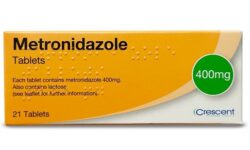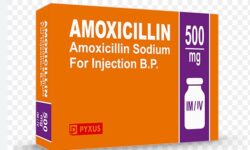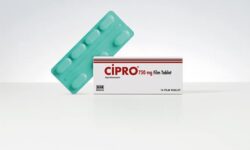Can i Drink Coffee While Taking Methotrexate?
If you are taking methotrexate for a medical condition, you may have heard conflicting information about whether it is safe to consume coffee while on this medication. In this blog post, we will delve into the interaction between methotrexate and coffee, and how it may impact the absorption and metabolism of the medication. We will also discuss the recommended amount of coffee consumption for those on methotrexate, as well as the potential risks of mixing the two. Lastly, we will emphasize the importance of consulting your doctor about the relationship between coffee and methotrexate to ensure your safety and well-being.
Methotrexate And Coffee: Understanding The Interaction
Methotrexate is a commonly prescribed medication for various health conditions, such as rheumatoid arthritis, psoriasis, and certain types of cancer. It works by suppressing the immune system and reducing inflammation. However, it is important to be aware of potential interactions with other substances, such as coffee. In this blog post, we will explore the interaction between methotrexate and coffee and shed light on the impact it can have on your health.
Firstly, let’s address the question, “Can I drink coffee while taking methotrexate?” The short answer is yes, you can consume coffee while on this medication. However, there are a few important factors to consider. Methotrexate is primarily metabolized in the liver, and coffee can affect the way the liver processes drugs. The caffeine present in coffee can stimulate the liver enzymes responsible for metabolizing methotrexate, potentially speeding up its clearance from the body. This interaction might result in reduced drug levels and decreased effectiveness of methotrexate.
When it comes to the absorption of methotrexate, coffee can also play a role. Research suggests that the acidity of coffee may interfere with the absorption of methotrexate in the stomach and intestines. This interference can lead to reduced drug absorption and, consequently, decreased therapeutic effects. Therefore, it is advisable to separate the consumption of coffee and methotrexate by at least a couple of hours to minimize any potential interaction.
| Potential Risks of Mixing Methotrexate and Coffee |
|---|
|
It is crucial to consult your doctor about the consumption of coffee while on methotrexate. Your healthcare provider will assess your specific case and provide personalized guidance. They may recommend adjusting the timing of coffee consumption in relation to your methotrexate dose or suggest alternative beverages or ways to mitigate potential interactions. Remember, every individual is unique, and the impact of coffee on methotrexate can vary from person to person.
In conclusion, understanding the interaction between methotrexate and coffee is vital for individuals who are prescribed this medication. While coffee consumption is generally considered acceptable, it is important to be aware of the potential risks and the impact on methotrexate absorption and metabolism. Always consult with your healthcare provider for personalized advice and recommendations based on your specific needs and medical condition.
Impact Of Coffee On Methotrexate Absorption
When taking medications, it’s essential to consider the potential impact of certain foods and beverages on their absorption and effectiveness. For individuals taking methotrexate, a common medication used to treat various conditions including cancer, rheumatoid arthritis, and psoriasis, understanding the interaction with coffee is crucial. In this blog post, we will delve into the impact of coffee on methotrexate absorption and discuss the recommended coffee consumption when on this medication.
Before delving into the impact of coffee on methotrexate absorption, it’s important to have a basic understanding of how this medication works. Methotrexate is classified as an antimetabolite, which means it interferes with the normal growth of cells, including cancer cells. It is also used as an immunosuppressant to treat autoimmune diseases such as rheumatoid arthritis and psoriasis. Methotrexate works by inhibiting the production of specific enzymes involved in the metabolism of folic acid, which is necessary for cell division and growth.
Now, let’s talk about the impact of coffee on methotrexate absorption. Coffee contains compounds known as polyphenols, which can bind to medications and potentially impact their absorption in the body. However, the research on the specific interaction between coffee and methotrexate is limited. While some studies suggest that coffee consumption may decrease the absorption of methotrexate, others show no significant effect. Therefore, it is important to consult with your doctor or healthcare provider about your coffee consumption while taking methotrexate.
| Recommended Coffee Consumption When On Methotrexate | |
|---|---|
| If you are an avid coffee drinker and are concerned about the potential impact on methotrexate absorption | It is recommended to: |
| If you experience any side effects or changes in your condition after consuming coffee | Discuss this with your healthcare provider as they can provide personalized recommendations based on your specific situation. |
Ultimately, the impact of coffee on methotrexate absorption may vary from person to person. While some individuals may experience decreased absorption and potential risks, others may not notice any significant effects. It is vital to consult with your doctor or healthcare provider to understand how coffee consumption may interact with your specific dosage and condition. They can provide personalized advice to ensure the effectiveness and safety of your methotrexate treatment.
Coffee’s Effect On Methotrexate Metabolism
When it comes to managing your health while taking methotrexate, it’s important to be aware of any potential interactions that could occur. One common question that arises is whether or not it is safe to drink coffee while taking methotrexate. In this blog post, we will explore the effect that coffee can have on methotrexate metabolism and discuss some important considerations to keep in mind.
Firstly, it is important to understand how methotrexate is metabolized in the body. Methotrexate is primarily broken down by certain enzymes in the liver, such as CYP3A4 and CYP2E1. These enzymes play a crucial role in the metabolism of many medications, including methotrexate.
Now, let’s dive into the impact of coffee on methotrexate metabolism. Coffee contains compounds called polyphenols, which have been shown to inhibit the activity of the CYP3A4 enzyme. This inhibition can potentially lead to increased levels of methotrexate in the body, as the drug is not being metabolized as efficiently. This can result in a higher risk of adverse side effects or toxicity.
- It is important to note that the relationship between coffee and methotrexate metabolism is not fully understood.
- Some studies have suggested that moderate coffee consumption may not have a significant impact on methotrexate levels or efficacy.
- However, other research has highlighted the potential risks of mixing coffee and methotrexate.
Given the conflicting information, it is always recommended to consult with your doctor or healthcare provider before making any changes to your coffee consumption while taking methotrexate. They can provide personalized advice based on your specific medical history and current treatment plan.
In conclusion, the effect of coffee on methotrexate metabolism is a topic that is still being researched and understood. While some studies suggest minimal impact, others raise concerns about potential risks. It is best to err on the side of caution and consult your healthcare provider for guidance. They can help you make an informed decision about the safest approach to coffee consumption while taking methotrexate.
Potential Risks Of Mixing Methotrexate And Coffee
When it comes to managing your health, it’s important to be mindful of potential interactions between medications and everyday substances, such as coffee. Methotrexate is a commonly prescribed medication for various conditions including cancer, rheumatoid arthritis, and psoriasis. If you’re on methotrexate, you may wonder about the risks of mixing it with coffee. Let’s explore the potential risks and considerations to keep in mind.
Methotrexate is a powerful medication that works by suppressing the immune system and inhibiting the growth of certain cells. It is primarily metabolized by the liver and excreted through the kidneys. Coffee, on the other hand, contains caffeine, which is a stimulant that can affect various body systems, including the liver and kidneys.
One potential risk of mixing methotrexate and coffee is the potential for increased liver toxicity. Both methotrexate and coffee are metabolized by the liver, and consuming excessive amounts of coffee while on methotrexate could potentially put additional strain on the liver. It’s important to note that moderate coffee consumption is generally considered safe for most people, but excessive intake should be avoided.
| Potential Risks of Mixing Methotrexate and Coffee |
|---|
|
Consulting Your Doctor About Coffee And Methotrexate
Methotrexate is a commonly prescribed medication used to treat various medical conditions, including cancer, rheumatoid arthritis, and psoriasis. However, when it comes to consuming coffee while taking methotrexate, it is essential to consult your doctor for guidance. While coffee itself does not directly interact with methotrexate, it may affect the absorption and metabolism of the medication.
When discussing coffee and methotrexate with your doctor, it is crucial to consider several factors. Firstly, caffeine, which is present in coffee, can have stimulant effects on the body. This can potentially interfere with the effectiveness of methotrexate or lead to increased side effects. Secondly, coffee may have a diuretic effect, causing increased urine production and potentially affecting the elimination of methotrexate from the body.
Additionally, methotrexate is primarily metabolized in the liver, and certain components in coffee, such as polyphenols, may affect the activity of liver enzymes, potentially altering the metabolism of methotrexate. This interaction could result in higher or lower levels of methotrexate in the bloodstream, affecting its efficacy and safety.
| – Methotrexate and coffee may interact |
| – Caffeine and its effects on methotrexate |
| – Potential liver metabolism interactions |
| – Personalized guidance from your doctor |
| – Possible recommendations and adjustments |
| – Importance of medical advice |
Frequently Asked Questions
Question 1: Can coffee affect the absorption of methotrexate?
Yes, coffee can potentially reduce the absorption of methotrexate in the body.
Question 2: How does coffee impact the metabolism of methotrexate?
Coffee can interfere with the metabolism of methotrexate, which may alter its effectiveness or increase the risk of side effects.
Question 3: What is the recommended consumption of coffee while taking methotrexate?
It is recommended to limit or avoid consuming coffee while taking methotrexate to minimize any potential interactions.
Question 4: What are the potential risks of mixing methotrexate and coffee?
The potential risks include reduced effectiveness of methotrexate, increased risk of side effects, and altered drug levels in the body.
Question 5: Is it important to consult your doctor regarding coffee and methotrexate?
Yes, it is crucial to consult your doctor about any potential interactions between coffee and methotrexate to ensure safe and effective use of the medication.
Question 6: Can coffee impact the overall effectiveness of methotrexate treatment?
Yes, coffee’s interaction with methotrexate can potentially reduce its overall effectiveness in treating the intended condition.
Question 7: Is there an alternative to coffee to avoid the potential interaction with methotrexate?
Yes, herbal teas or non-caffeinated beverages can be considered as alternatives to coffee to avoid potential interactions with methotrexate.



